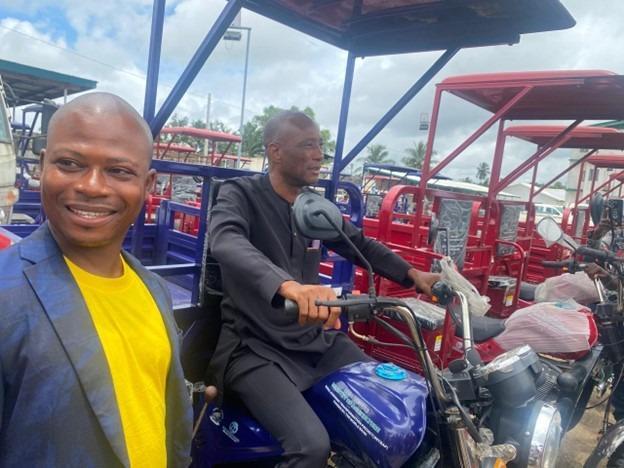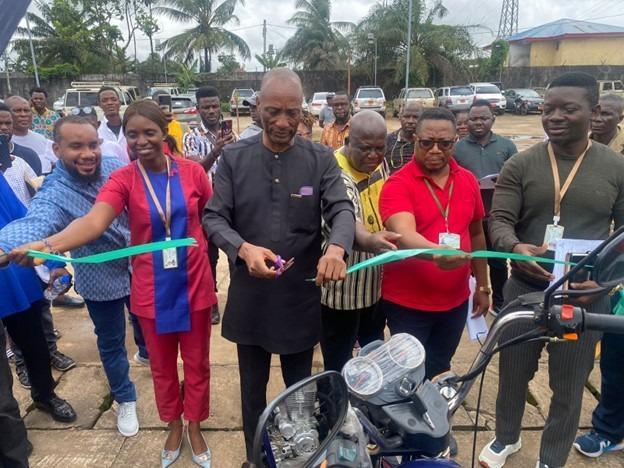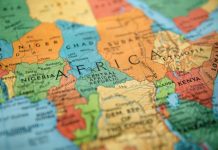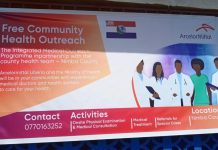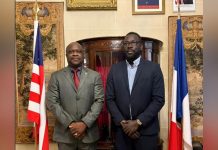Africa-Press – Liberia. Deputy Agriculture Minister for Planning, David Akoi, emphasized the importance of agriculture in Liberia’s economic recovery and growth, particularly through the involvement of the youth.
The Ministry of Agriculture, through its World Bank Project Implementation Unit (PIU), has launched an initiative to distribute 480 tricycles to young agricultural entrepreneurs across Liberia. This initiative aims to enhance agricultural productivity, improve market access, and transform farming in Liberia, where agriculture plays a crucial role in the economy.
The tricycles are expected to ease the transportation challenges faced by rural smallholder farmers, helping them move produce between farms, villages, and towns, particularly during the rainy season. However, Liberia’s farm-to-market roads have long been plagued by poor conditions, creating significant difficulties for smallholder farmers, especially after harvest.
These transportation challenges have led to increased post-harvest losses, restricted agricultural production, and limited market access—factors that affect food availability and reduce farmers’ incomes.
While officially launching the initiative, Deputy Agriculture Minister for Planning, David Akoi, emphasized the importance of agriculture in Liberia’s economic recovery and growth, particularly through the involvement of the youth.
“Today marks a pivotal moment in our efforts to empower young people in agriculture. These tricycles will not only facilitate the transportation of goods but also provide our youth with the means to engage in agricultural activities more effectively. By investing in our young agricultural entrepreneurs, we are investing in the future of Liberia,” Akoi said.
Earlier, Galah Toto, National Program Coordinator of the MOA World Bank PIU, explained that the initiative was born out of the challenges posed by poor farm-to-market roads in most farming communities. He highlighted how difficult and time-consuming it is for farmers to transport produce, leading to post-harvest losses, restricted production, and limited market access—ultimately affecting food security and farmers’ income.
According to Toto, the Ministry, through its World Bank PIU, imported 480 tricycles that will be operated by youths to reduce transportation burdens for smallholder farmers in rural areas. He stressed that youth involvement in agriculture could help address the challenges of food security and unemployment in Liberia. This initiative aims to reduce rural poverty and hunger by enhancing market access for those within the agricultural value chain while promoting youth agricultural entrepreneurship and sustainable employment.
Beneficiary Selection Criteria
Beneficiaries of the tricycles are selected based on several criteria including “Must be between 18 and 35 years of age, live within the community or village where the tricycle will be operated, have the ability to ride a motorbike/tricycle and have a good reputation in the community, lived in the community or village for more than two years and be willing to pay at least 40% of the tricycle’s purchase cost, either through equity or loans from financial institutions, including community banks.
Beneficiaries will use the tricycle to provide transportation services in and around their locality and undergo equipment and business management training before taking possession of the tricycle.
The selection of beneficiaries is also based on counties with high agricultural production, commercialization, and poor road conditions that limit market access. The allocation of tricycles per county is based on agricultural population, production capacity of staple crops (rice and cassava) from 2019 to the present, and the county’s potential for agricultural commercialization.
The distribution per county is as follows: Bomi (15), Bong (79), Gbarpolu (20), Grand Bassa (27), Grand Cape Mount (14), Grand Gedeh (18), Grand Kru (15), Lofa (68), Margibi (13), Maryland (15), Montserrado (13), Nimba (105), Rivercess (14), Rivergee (13), Sinoe (21), and 30 tricycles allocated to mechanization hubs around the country.
Payment and Usage Conditions
Beneficiaries are required to pay 40% of the procurement cost of the tricycle, with at least 70% of the transported commodities being agricultural products. A memorandum of understanding (MOU) will be signed between the beneficiaries and the Ministry of Agriculture, outlining these conditions.
Additionally, beneficiaries will be required to complete a monthly commodity transport form, indicating the total volume of crops transported within a specific agricultural value chain.
For More News And Analysis About Liberia Follow Africa-Press

